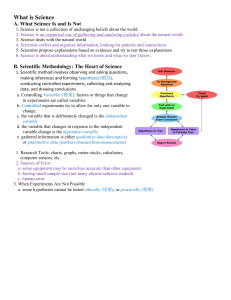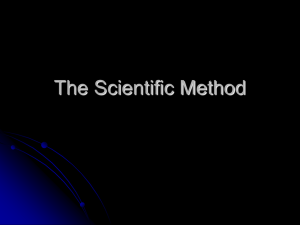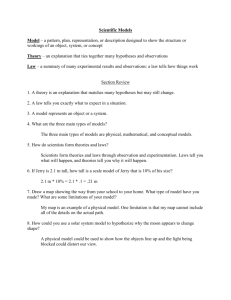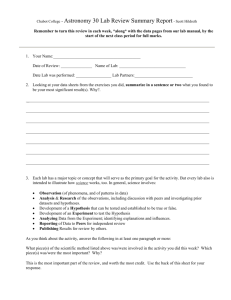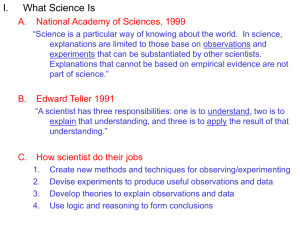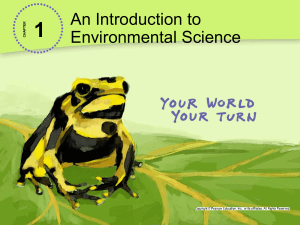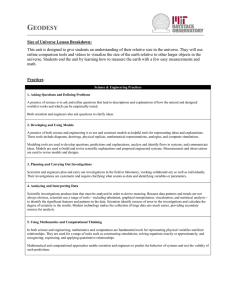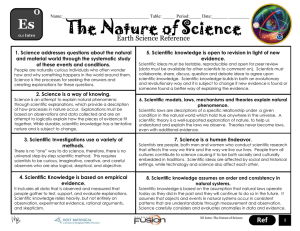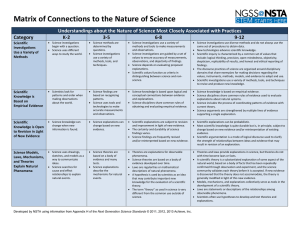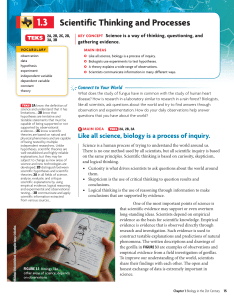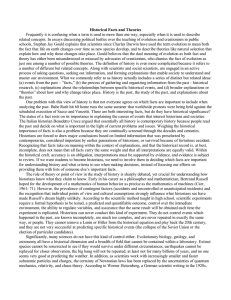The Nature of Science What is Science? Science is NOT...
advertisement
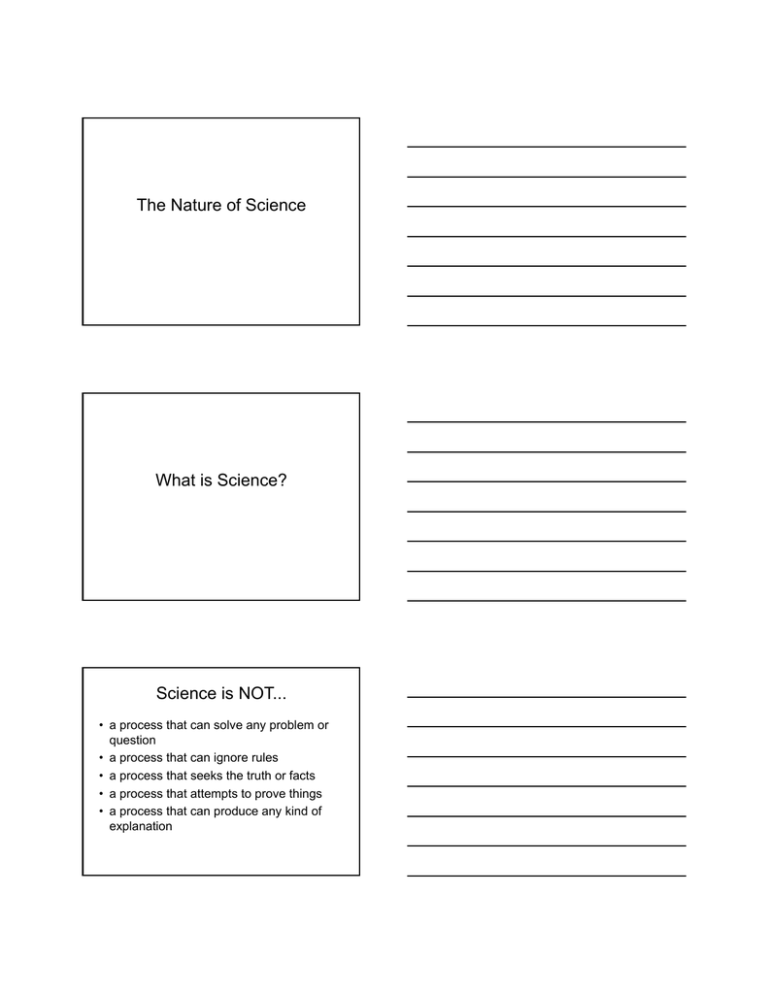
The Nature of Science What is Science? Science is NOT... • a process that can solve any problem or question • a process that can ignore rules • a process that seeks the truth or facts • a process that attempts to prove things • a process that can produce any kind of explanation Science is NOT... • a process that produces certainties or absolute facts • a process that can always be relied upon to be totally accurate • a process that is always properly used • a process that is free from values, opinions or bias Science is NOT... • a process that in which understanding comes from faith or beliefs • a process that in which one solution is as good as another Science is... • a process by which we try to understand how the natural world works and how it came to be that way Modern science is based upon several underlying assumptions: • The world is real. The physical universe exists, whether we can sense it or not. • It’s possible that humans can accurately perceive and understand the physical universe. • Natural processes are sufficient to explain the natural world. • Nature operates the same way everywhere in the universe, except where we have contrary evidence. Modern science has its limitations: • Observations are confined to the biological limits of our senses, even with technological enhancement. • The mental processing of our sensory information is unconsciously influenced by previous experiences, which may result in inaccurate or biased perceptions of the world. • It is impossible to know if we have observed every possible aspect of a phenomenon, have thought of every possible alternative explanation, or controlled for every possible variable. • Scientific knowledge is based only on the available evidence which must be assessed, not on indisputable "proof". – The history of science is filled with numerous examples of scientific knowledge changing over time. • Science must follow certain rules • Science, like any human endeavor, can be done poorly. • Science can be misused. “Rules” of Science • Scientific explanations must be based on careful observations and the testing of hypotheses. • It must be possible to disprove a hypothesis (with evidence) • All hypotheses are not of equal value; some are better (work better) than others. • The "best" hypothesis must be one that best fits all the evidence. • Scientific theories or explanations cannot be based merely upon personal opinion, popular vote, belief, or judgment. • Scientific explanations cannot include supernatural forces (these can never be disproved). • Science is not democratic or fair. Scientific Fact and Theory • There is no certainty in science. • Our understanding of how things work can change over time based on new observations and evidence. • Nothing can ever be proven true. We can only show that things are false. Fact • a confirmed or, at least, agreed-upon empirical observation. • Scientific facts, even what appear to be simple observations, are themselves embedded in or rooted in the theories the observer holds. Hypothesis • a proposed explanation of certain "facts" that must be empirically testable in some conceivable fashion. • A scientific hypothesis is really not proven true or correct; rather, it is either rejected (or "falsified") because it is determined to be inconsistent with the data. Theory • an integrated, comprehensive explanation of many "facts" and an explanation capable of generating additional hypotheses and testable predictions about the way the natural world looks and works. • Scientific theories represent our best efforts to understand and explain a variety of what appear to be interrelated natural phenomena. Science is a Social Activity • Scientific work involves many individuals doing many different kinds of work and goes on to some degree in all nations of the world. • Science reflects social values and viewpoints. • The direction of scientific research is affected by informal influences within the culture of science itself, such as prevailing opinion on what questions are most interesting or what methods of investigation are most likely to be fruitful. – Elaborate processes involving scientists themselves have been developed to decide which research proposals receive funding, and committees of scientists regularly review progress in various disciplines to recommend general priorities for funding. • Science goes on in many different settings. – Scientists are employed by universities, hospitals, business and industry, government, independent research organizations, and scientific associations. – They may work alone, in small groups, or as members of large research teams. – Their places of work include classrooms, offices, laboratories, and natural field settings from space to the bottom of the sea. • Scientists share their findings with others by publishing scientific papers.
